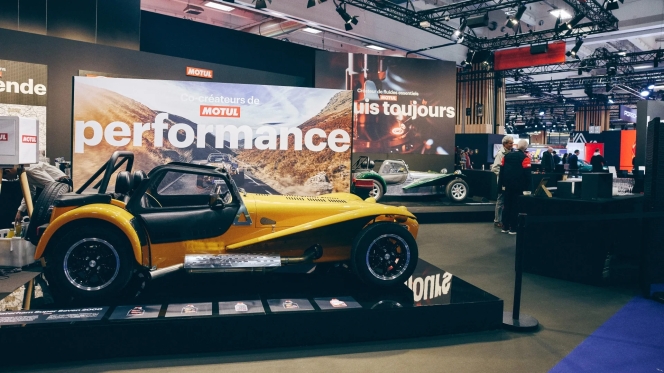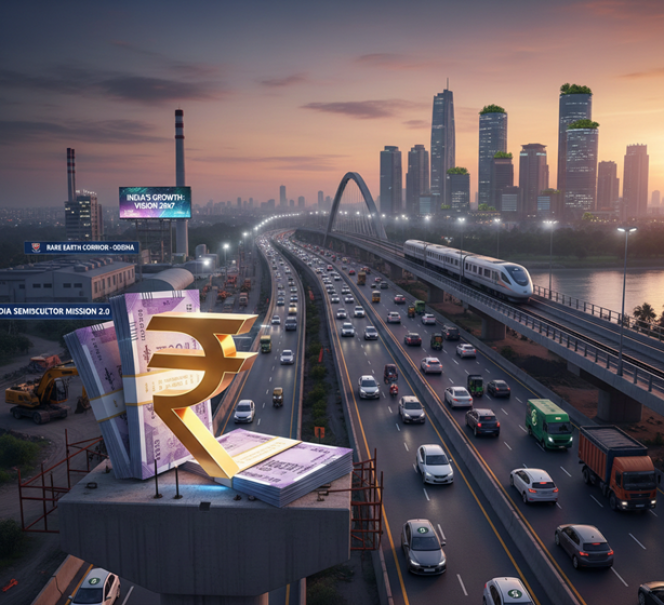AAAA Is Positive On Growth Outlook Over The Next Five Years
- By T Murrali
- December 19, 2020

Q: Did your members face any challenges during the COVID? Elaborate.
Charity: As the pandemic started to impact Australia in February, our members initially faced the uncertainties of the virus itself and how that would affect their businesses, customers, employees, and the economy. State and Territory Governments then started imposing various levels of restrictions on people movement and trade. This affected (to varying degrees) large portions of manufacturing, distribution, retail, and automotive service and repair across the country.
Our members then faced the challenge of interpreting hastily constructed and not always coherent new regulations and sought answers to whether they could remain open, and if so to what degree.
Businesses also had to navigate the various Government assistance options available, make difficult decisions around staff, faced the loss of revenue and customers and worried about the short-term survival of their businesses.
Following a national lockdown from March through to May, Australia regained control of infection numbers, and once restrictions started easing businesses exhibited substantial recoveries. However, the state of Victoria (the second largest in Australia) was hit with a second, much larger COVID-19 wave in June. The Victorian Government responded by imposing a hard lockdown of metropolitan Melbourne which ran from July until the end of October. It is only now that restrictions are slowly being wound back, that Melbourne based businesses can start their process of recovery.
Q: What are the learnings for AAAA from the pandemic and how the association supported its members during this time?
Charity: We were proactive in our approach to the pandemic, but of course no one was fully prepared for how events would turn out and the scale of the impact on our economy.
As the first wave hit, we received an unprecedented influx of members and the broader industry who turned to the AAAA seeking information and assistance. Our primary role was to influence and interpret Government regulations and support offerings and provide clear and timely information to our members. Regular, accurate updates assisted our members in making the best decisions and receiving the Government support they needed.
Due to the high level of demand for this information, we had to adapt and further strengthen our communication methods quickly. We added online webinars to our repertoire of communication channels to provide information to as many people as possible. Webinars provided the additional benefit of allowing direct, live member Q&A sessions.
Members had direct access to our advocacy team during the crisis, and the team were inundated with individual requests and queries asking for advice concerning the pandemic, the Government response and their particular situation.
We were successful in lobbying Government to classify automotive repair as an essential service. As a result, the majority of our industry stayed open throughout the year, and we have lost very few staff from the industry, which is a remarkable achievement.
The innovation that was displayed right across the sector was inspiring-mechanical workshops implemented contactless drop-off and pick up systems, adopted SMS and digital communications to inform their customers that they were still open and implemented a range of process changes to ensure the safety of their staff and customers.
Our parts supply chains had to deal with working from home arrangements, scaled back staffing in distribution centres and a whole range of logistical challenges to ensure the trade had the right part, at the right time for the right price.
Automotive retailing also held up remarkably well right throughout the year as people with disposable income and extra time worked on their cars.
We also learned how resilient our industry is. Despite the challenges, we saw incredible resolve, determination and support across the industry and ‘being in this together’ unified everyone toward common goals, putting aside competitive rivalries for the greater good.
Q: How are online sales in the automotive parts retail segment evolving in Australia?
Charity: While online sales of automotive parts and accessories have grown over the past five years due to the strong consumer uptake of online shopping in general, they still make up less than five percent of the overall market. The diversity of the Australian car parc and the need to ensure parts meet exact specifications means that many consumers and trade customers still buy from traditional bricks-and-mortar retailers and resellers. Having said that, outside of the online marketplaces such as e-Bay, the majority of online sales are through the large traditional retail groups such as Supercheap Auto, Bapcor (Autobarn/AutoPro) and GPC (Repco/Sparesbox). While Amazon attempted a major push into online retailing of automotive parts and accessories several years back, they have not been able to gain significant market share from the established online retailers.

Q: What is the role played by AAAA whenever issues crop between nations on Tariff etc.? Is there any impact on imports of aftermarket products from China?
Charity: We take a proactive approach to address any tariff issues that arise from time to time that have the potential to impact on our membership. An example of this was in 2019 when the Trump administration was considering imposing a Tariff of 25 percent on automotive products exported into the USA based on national security grounds (section 232). The USA is our largest export market.
We were able to lobby for our Department of Foreign Affairs and Trade to engage with their US State Department counterparts to advocate for Australia’s interests with the US Administration. This involved direct representations by Australia’s Foreign Affairs Minister as well as our Ambassador to the USA to put the position that the products that the Australian industry supply into the USA complement rather than compete with US manufacturers. Ultimately the Trump administration did not proceed with the Tariff.
We have not experienced any issues with the import of aftermarket products from China other than some isolated supply issues earlier in the year as a result of the impact of the COVID-19 on China’s manufacturing sector.
Q: The connected vehicle is a boon for the users; how is it for the aftermarket industry?
Charity: Similar to other new technologies, connected vehicles present new opportunities for the aftermarket; however, at the same time, challenges have presented themselves. Over the years as vehicles include more and more electronics, both hardware and software, it has made it more difficult for independent service and repair workshops to access software updates and repair and service information from car manufacturers. This has a flow-on effect on their ability to compete with dealerships on fair and reasonable terms in servicing and repair of vehicles. We have campaigned for over ten years to have a law implemented that compels the manufacturers to share this data. In great news, a mandatory data sharing law will be introduced in Australia in 2021, which will force all car companies to share all repair and service information with all repairers on fair and reasonable commercial terms.
Despite the advances in the connected car, the fundamentals of vehicles have not changed. Components need service and repair, and vehicles remain open to all manner of modifications and customisation. In Australia, changing government regulations can impose challenges regarding the modification of vehicles; however, we have a constructive dialogue with regulators to ensure our members can continue to offer safe accessories and modifications for vehicle owners.
Q: What percentage of sales in Australia account for electric vehicles? What is the current EV parc? How does AAAA support its members in catering to the requirements of these new breed vehicles?
Charity: Electric vehicles continue to gain some popularity with sales volumes increasing year on year; however, they remain a tiny part of the Australian car parc. Electric vehicles account for only about 0.6 percent of the Australian market currently. Sentiment wise, consumers are more receptive towards owning an EV vehicle than five years ago. The main challenges we face are the lack of EV charging infrastructure and the vast distances involved in Australian road networks, as well as the price of EV’s compared to the equivalent internal combustion engine model. We don’t foresee any sizeable shift in the change to the car parc in relation to EV’s for at least another ten years.
At an AAAA-member support level, we are beginning to host information and training evenings that focus on EV safety and specific servicing requirements and monitor any changes in the car parc or Government regulations around EV’s that may have an impact on the industry.
 Q: Can you briefly tell us about your initiatives in building professional skills to your members?
Q: Can you briefly tell us about your initiatives in building professional skills to your members?
Charity: One of the core principles of the AAAA is to ensure member sustainability and foster member growth, with skills development an important component of this.
At Government level, we support and advocate for issues around skills and training. In Australia, there is a shortage of skilled labour, and our industry needs more apprentices to choose automotive as a career. Along with Government advocacy on these issues, we are increasing our work on strategies at an industry level to drive new apprenticeship levels and interest in what is a fantastic and diverse industry.
AAAA members are exposed to regular AAAA training and networking evenings, designed to educate and build skills of those in our industry. Our member webinars are often themed toward skills development with topics including local area marketing, cash flow and business efficiency.
We also provide business development tools and services to members. This includes access to our advocacy team, market research, including our Car Parc Data tool and Workshop Health Check, and hotlines for human resource and legal matters.
Q: Can you update on the “Automotive Innovation Labs” that AAAA established in Victoria and South Australia a couple of years ago?
Charity: The Auto Innovation Centre (AIC) is just about to celebrate its first birthday in Victoria, while the facility in South Australia is close to being opened. The Melbourne facility contains cutting-edge testing and scanning equipment, workshop facilities and other manufacturing and development capabilities for our industry to utilise, plus a fleet of new vehicles for product development.
The AIC is already the go-to facility for many Australian businesses seeking assistance with product development thanks to its unique capabilities. The AIC conducts regular Electronic Stability Control and Brake Testing to ensure products such as suspension and braking systems meet Australian Design Rules. 3D Scanning is another popular service offering, with a soon to be launched database of vehicle scan data available to subscribers. The AIC also hosts businesses that run training, networking and information evenings and the fully equipped workshop is used by companies for product fitting sessions using the AIC vehicle fleet.
Q: What is your outlook for the growth of the aftermarket in the next five years?
Charity: We are very positive about the growth outlook in the aftermarket over the next five years as all the key drivers that we look at to assess future demand in our industry is positive. These include:
The fact that Australians are still very reluctant to use public transport like they did in the past which has driven up the price of second-hand cars as families buy a second or even third car to ensure they can get to where they need to be without relying on transport.
New car sales that had already experienced two consecutive years of month-on-month declines have been decimated this year. This will drive up the average age of vehicles meaning that a greater proportion of vehicles will and are being serviced in the independent aftermarket.
With many interstate borders still closed and international borders shut for the foreseeable future, we are seeing the return of the family road trip which has seen a massive boom in the sales of 4WD accessories and vehicle modification services.
To further support these market dynamics, the imminent introduction of a national mandatory data-sharing law will lay the foundation for further strengthening of the independent service and repair sector moving forward.
So while 2020 is a year that we’d all rather forget, we are experiencing strong demand for our products and services across all segments of the aftermarket and we are projecting this to be sustained over the next five years. (MT)
Kia Connect Appoints Olivier Pascal As President And CEO
- By MT Bureau
- February 06, 2026

Kia Connect has named Olivier Pascal as President and Chief Executive Officer with effect from 1 January 2026. He brings over 15 years of automotive industry expertise to the position, having most recently acted as General Manager of Connected Cars, where he led European initiatives for connected vehicle experiences and data development. His career includes leadership across engineering, sales, marketing and technology functions at various dealership, regional and global levels. In his new capacity, Pascal will oversee the company’s connectivity, digital, data and charging strategies, emphasising customer experience, innovation and sustainable growth throughout Europe.
This leadership transition sees Marc Hedrich and Pablo Martínez Masip departing from their positions as President & CEO and COO, respectively. During their tenure, they were instrumental in driving strategic and operational performance across European markets. Hedrich moves to the role of President for Kia France, while Martínez Masip continues as Vice President of Product and Marketing at Kia Europe.
Kia Connect is dedicated to enhancing the customer journey through a fully integrated digital ecosystem, which now supports nearly two million users. The platform combines connected car services, digital mobility solutions and charging infrastructure, aligning with Kia’s broader shift towards software-defined and electrified mobility. Central to this ecosystem is the Kia App, launched last May, which consolidates connectivity, charging and ownership services into one interface. The app provides features such as remote status checks, vehicle diagnostics and charging control, with regular over-the-air updates introducing continual improvements informed by user feedback.
A recent December update introduced a 3D visualisation feature for the EV9 model, allowing drivers to view an accurate digital representation of their own vehicle’s configuration, including exterior colour and wheel design. This addition aims to create a more intuitive and tangible connection between the driver and their car through the app. Following an evaluation period, Kia intends to extend this 3D visualisation to other electric vehicle models in 2026.
Pascal said, “Kia Connect’s mission is to make every driving and charging journey smarter, safer, more convenient and more personal. In 2026, we will deliver tangible value for our B2C and B2B customers and partners, higher-quality features, a truly personalised digital experience, scalable B2B services and a robust charging solution. By combining innovation, unique customer experiences, responsible data use and operational rigour, we will build sustainable growth and a platform that supports Kia brand differentiation and business success in Europe.”
Motul Extends Partnership With Caterham, Becomes Title Sponsor For 2026 Championship
- By MT Bureau
- February 05, 2026

Caterham and Motul have solidified their ongoing collaboration with a new long-term agreement, blending Caterham’s focus on lightweight sports cars with Motul’s extensive expertise in advanced lubrication, honed over more than a century and a half. The alliance was celebrated publicly at Rétromobile 2026 in Paris, where a 2005 K-Series and a 2025 Super Seven 2000 were displayed on Motul’s stand. Under the renewed partnership, every new Caterham Seven produced at the company’s Dartford headquarters will leave the factory using Motul lubricants, spanning all models from the road-going 170 to each race car competing in the five Caterham Motorsport UK Championships.
Further deepening the relationship, Motul will take on the role of title sponsor for the Caterham Seven Championship UK in 2026, the brand’s premier national racing series. Known globally for its high-performance, motorsport-oriented fluid solutions, Motul brings decades of experience supporting automotive reliability and competitive success. Its technical innovation and research capabilities, proven through partnerships with major events like the 24 Hours of Le Mans and the Dakar Rally, ensure that its products meet the most demanding requirements, making Motul a natural and strategic partner for Caterham’s engineering and racing ambitions.
Ali McColl, Global Head of Marketing, Caterham, said, “This partnership is a significant milestone for Caterham, aligning our brand with a world-renowned leader in lubricants and fluid technology, reinforcing our commitment to performance across both our road and race cars. Motul brings a depth of experience in performance and efficiency that few other partners can offer. This agreement also marks an exciting new chapter for Caterham Motorsport. As we look ahead to the 2026 season, we are proud to unveil the Motul Caterham Seven Championship UK as the new name for the pinnacle of Caterham racing in the UK.”
Andreea Culcea, Chief Brand & Communication Officer, Motul, said, “We are proud to renew our partnership with Caterham, a brand renowned for its exceptional sports car expertise. Since 2019, our collaboration has been driven by shared values of performance, craft and precision. At Motul, we are developing tailor-made solutions designed to unlock the full potential of our partners’ machines. Working alongside a manufacturer like Caterham, where hand-crafted, limited-production cars are born from deep engineering know-how and passion, reflects our vision of authentic partnerships.”
- January 2026
- sales
- Hero MotoCorp
- TVS Motor Company
- Royal Enfield
- B Govindarajan
- Eicher Motors
- Mahindra & Mahindra
- Tata Motors Passenger Vehicles
- Hyundai Motor India
- Toyota Kirloskar Motor
- JSW MG Motor India
- Kia India
- Tarun Garg
- Nalinikanth Gollagunta
- Atul Sood
- Tata Motors Commercial Vehicles
Indian Automotive Sector Starts 2026 With Robust January Wholesales Growth
- By MT Bureau
- February 01, 2026

The Indian automotive industry has commenced the 2026 calendar year on a high note, with automakers across two-wheeler, passenger vehicle and commercial vehicle segments reporting significant YoY wholesale growth for January. The performance reflects a resilient domestic market and a burgeoning recovery in international exports.
The two-wheeler sector saw massive volume gains, spearheaded by Hero MotoCorp, which recorded dispatches of 557,871 units, marking a robust 26 percent growth compared to 442,873 units in January 2025. This performance marks the company’s 25th consecutive year of market leadership. TVS Motor Company followed with a 30 percent increase in domestic two-wheeler sales, reaching 383,262 units, while its electric vehicle (EV) wing grew by 50 percent to 37,756 units.
Royal Enfield achieved a significant milestone, surpassing 1 million year-to-date sales in just 10 months, posting January sales of 104,322 motorcycles – a 14 percent YoY increase, which includes 93,781 units in the domestic market and 10,541 units exported.
B. Govindarajan, Managing Director, Eicher Motors and CEO, Royal Enfield, said, "The new year has begun on a positive note for Royal Enfield – extending the strong momentum from the previous quarter and marking four consecutive months of healthy double-digit growth. We have crossed 1 million motorcycle sales in this financial year across the globe and also crossed 100,000 motorcycle sales in exports."
In the passenger vehicle (PV) segment, Mahindra & Mahindra reported a 25 percent growth in utility vehicles, selling 63,510 units domestically. Tata Motors Passenger Vehicles saw a dramatic 47.1 percent rise in total sales (including EVs) to 71,066 units.
Hyundai Motor India achieved its highest-ever monthly domestic sales of 59,107 units, up 9.5 percent, while Toyota Kirloskar Motor registered 30,630 units, representing a 17 percent YoY growth. Kia India also started the year strong with 27,603 units, a 10.3 percent increase and JSW MG Motor India grew 9 percent with 4,843 wholesale units.
Honda Cars India reported domestic wholesales of 6,193 units and 748 units in exports. These figures follow a January 2025 performance where the company registered 7,325 domestic units and 4,979 units in exports.
The current sales volume is supported by demand for the Honda Amaze, alongside steady contributions from the City and Elevate models.
Tarun Garg, MD & CEO, Hyundai Motor India, said, "January 2026 marks a defining chapter in Hyundai Motor India’s journey. Achieving our highest-ever monthly domestic sales of 59,107 units... reflects not only Hyundai’s brand leadership but also the collective strength of our people, partners and customers."
Nalinikanth Gollagunta, CEO, Automotive Division, Mahindra & Mahindra, said, "Building on the strong momentum of last year's performance, we began the year on a strong note in January... On 14th January, we opened bookings for XUV7XO and XEV 9S clocking 93,689 bookings for a booking value of INR 205 billion - a record-breaking milestone in just 4 hours."
Atul Sood, Senior Vice-President, Sales & Marketing, Kia India, said, "The encouraging start to 2026 reflects the continued trust customers place in the Kia brand. The positive response to the new-generation Seltos, steady demand for the Sonet, and growing popularity of the Carens Clavis and Clavis EV, underline the strength and balance of our portfolio."
Kunal Behl, Vice President, Marketing & Sales, Honda Cars India Ltd, said: “The year has begun on a strong note, supported by a healthy sales momentum. The Honda Amaze continues to bring in strong demand for its value for money offering along with the City and Elevate that contribute steadily to the overall business. We remain confident of sustaining this positive momentum in the coming months.”
The commercial vehicle (CV) sector also demonstrated strength, particularly in heavy and light cargo segments. Tata Motors reported total CV sales of 38,844 units, up 29.1 percent from 30,083 units in the previous year. Within this, Heavy Commercial Vehicle (HCV) trucks saw the sharpest rise at 41.2 percent. Mahindra’s domestic CV sales grew by 22 percent to 27,656 units, driven largely by the LCV 2T–3.5T category.
Union Budget 2026-27: Supply Chain Resilience, Infra Push To Drive Auto Industry Growth
- By MT Bureau
- February 01, 2026

In a strategic pivot from direct consumer subsidies to foundational supply-chain resilience, the 2026-27 Union Budget, presented by Finance Minister Nirmala Sitharaman, focuses on bolstering the structural integrity of the Indian automobile industry.
A cornerstone of this year’s fiscal policy is the massive infrastructure and logistics push, highlighted by the development of the Dankuni-Surat Dedicated Freight Corridor and the operationalisation of 20 new national waterways. These initiatives, alongside a coastal cargo promotion scheme aiming to double the share of waterway freight to 12 percent by 2047, are designed to drastically lower logistics costs and ease the movement of components across the country.
Simultaneously, the government is reinforcing the industry's backbone by establishing a INR 100 billion SME Growth Fund to provide long-term capital for auto-component MSMEs, while enhancing liquidity through the Trade Receivables Discounting System (TReDS) and easing regulatory hurdles via ‘Corporate Mitras’ in Tier-II and Tier-III cities.
To secure the future of high-tech mobility, the Budget further expands the India Semiconductor Mission (ISM 2.0) to include domestic equipment manufacturing and chip IP, while nearly doubling the allocation for the Electronics Components Manufacturing Scheme to INR 400 billion. This technological drive is matched by a robust commitment to the electric vehicle (EV) ecosystem, specifically through the creation of ‘rare earth corridors’ in Odisha, Kerala, Andhra Pradesh and Tamil Nadu. These hubs will provide plug-and-play ecosystems to insulate the industry from global mineral volatility and supply curbs. Complementing this is a series of customs duty exemptions on capital goods used for lithium-ion cell manufacturing and critical mineral processing, which is expected to drive down battery costs and encourage local gigafactory expansion. Finally, for the clean energy segment, the full excise duty exemption on the biogas portion of blended CNG offers immediate relief to fuel prices, marking a comprehensive effort to foster a self-reliant, sustainable, and cost-competitive automotive landscape in the wake of previous GST reforms.







Comments (0)
ADD COMMENT